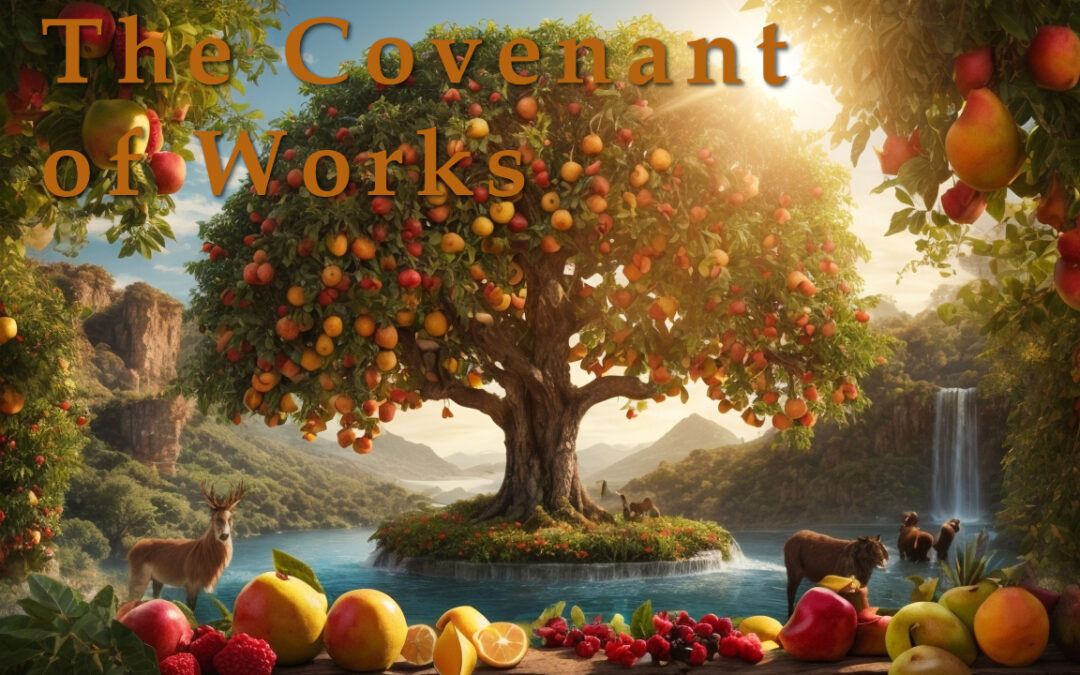“Blessed are the poor in spirit: for theirs is the kingdom of heaven.”
(Matthew 5:3)
As the apex of his creation, God made man… and he also made him the tenant of the most pristine property on earth, the Garden of Eden. Adam’s lease to the garden was in the form of God’s Law, or more specifically, his Covenant of Works. The conditions of this lease were not only simple and straightforward, they were also utterly generous. Genesis 2:15-17 explains, And the Lord God took the man, and put him into the garden of Eden to dress it and to keep it. And the Lord God commanded the man, saying, “Of every tree of the garden you may freely eat. But of the tree of the knowledge of good and evil, you shall not eat of it: for in the day that you eat thereof you shall surely die.”
So in addition to being caretakers of their new home, Adam and Eve were allowed access to every tree of the garden but one. There was no negotiating; this was God’s Law. And yet, as John wrote in the fifth chapter of his first epistle, God’s commandments “are not burdensome,” (1 John 5:3), for they could fully and freely enjoy the fruit from every other tree in the Garden.
Further, the terms of this covenant were patently clear regarding the consequences if Adam chose not to comply. Again, in very black-and-white language, breaking covenant carried the severest of penalties – that of death. On the other hand, Adam’s obedience guaranteed perfect, eternal life and peace in this magnificent paradise on earth.
Adam had one simple, black-and-white choice. Either he obeyed God’s Law, or he didn’t. So when Adam knowingly chose disobedience and broke covenant with God, he forfeited all his rights to eternal life in paradise not only for himself, but also for all of us as our God-ordained representative. In turn, God’s Law became the flaming sword at Eden’s gate to keep him and all his posterity out.
In essence, God’s Law to Adam that day in the garden and that which he gave Israel at Mt. Sinai were one and the same. Adam’s covenant was communicated in fewer words and without accompanying thunder, but Adam’s one act of disobedience broke not only his initial covenant with God but also God’s Law as given to Moses in the Ten Commandments:
- Adam chose another god when he listened to and followed the devil.
- He idolized and deified his own desires when, as the apostle describes, “he made his belly his god,” (Phil. 3:19).
- He took the name of God in vain when he did not believe him.
- He chose not to keep the rest and estate in which God had set him.
- He dishonored his Heavenly Father; therefore his days were not long in that land which God originally gave him.
- His act resulted in death for himself and all his posterity.
- He committed spiritual fornication with his eyes and heart when he desired what was forbidden.
- He took for himself what God deemed untouchable.
- He bore witness against God when he believed the witness of the devil above God’s direct command to him.
- He coveted what was not given him, which cost not only his life but also the lives of all his progeny.
In a word, Adam’s one act of disobedience, fueled by pride of heart and a worldly desire for more, made sinners of us all. John Lightfoot rightly says, “It is not for nothing that blessed are the poor in spirit, are the first words in Christ’s sermon in Matthew 5:3, because the proud in spirit were the first sinners.”[1]
Contemplations:
- Lord, the way leading to your kingdom is a narrow passage, through which none can enter that are not lowly and humble, content to strip themselves of whatever may hinder their entrance into it. O give me the grace to be truly humble in your sight, as your child should be, and to throw off everything that presses me down, and those sins that cling to my soul, that I may with singleness of heart and devotion enter into your kingdom.
- I see, Lord, that blessedness is attributed to every needful grace (Matt. 5:3). This could not be unless he that has one needful grace also has every needful grace. For where one grace is requisite to a state of blessedness, in that one reside all graces that make up, and consummate, blessedness.
- The first mark of blessedness is a spirit of humility, “blessed are the poor in spirit.” Who are the poor in spirit? They are those who recognize their spiritual poverty apart from God. Those who are proud of heart and believe they have no need for God are those whom God cannot and will not bless. For as James 4:6 states, “God opposes the proud but gives grace to the humble.”
- Lord, my comforts are rare, my crosses frequent, my pleasures momentary, my pains persistent, my gifts small, my needs and infirmities great, my good deeds few and tainted with imperfections, my sins infinite. Let these considerations, O Lord, humble me that Christ may raise me… and wound me that Christ may heal me.
Further References for Matthew 5:3:
Isa. 61:1; Luke 6:20; Psalm 1:1; Psalm 51:17
[1] John Lightfoot, The Works of the Reverend and Learned John Lightfoot D. D., (London: W. R., 1684), 1028.


